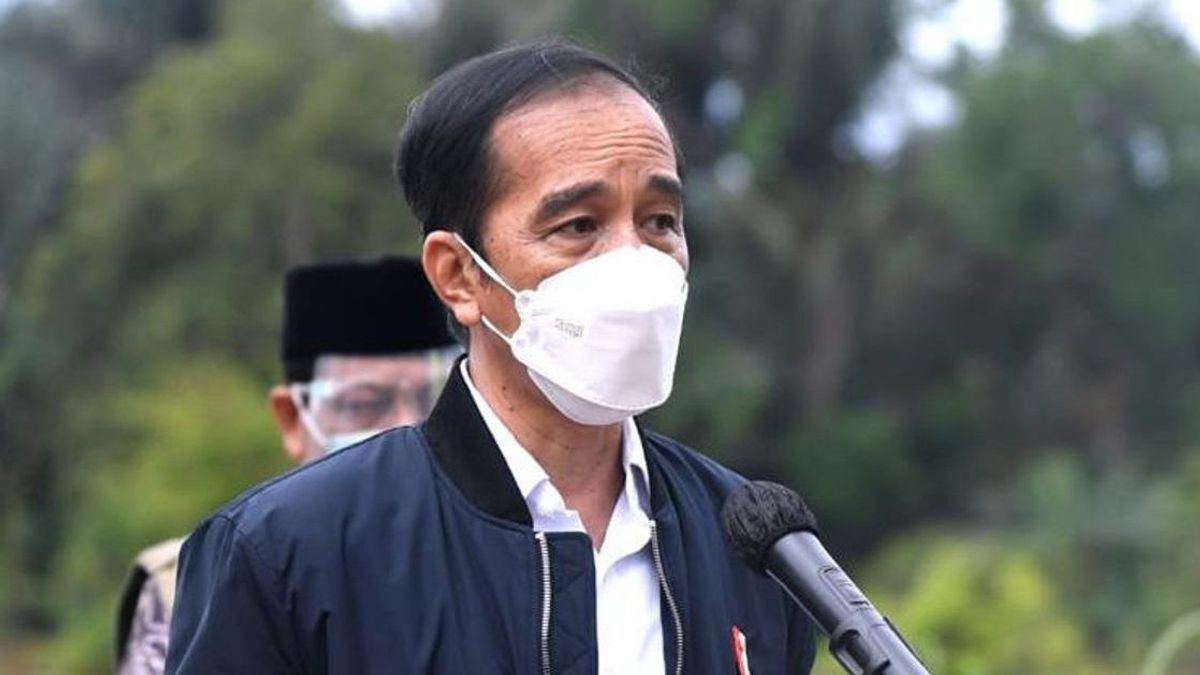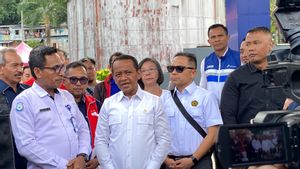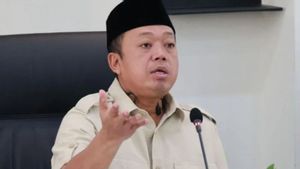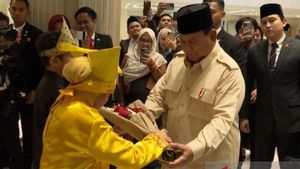JAKARTA - A report from the Central Statistics Agency (BPS) which states that Indonesia's economic growth will be at the minus 2.07 level throughout 2020 seems to be a strong warning for the government to find ways to find momentum in order to reverse the situation in the 2021 period. It is recorded that that is the deepest contraction after the 1998 crisis hit.
The urgency to improve the situation must be done immediately. This is because the economic condition of this country is still considered quite vulnerable to being influenced by various policies from other countries, particularly the United States (US). This can be proven by the sufficient dependence of Indonesia on foreign capital flows into the portfolio sector.
Bank Indonesia noted, the realization of portfolio investment throughout 2020 was recorded at USD 9.45 billion. This year, the monetary authority is aiming for the realization target to be twice as large, or to be exact, USD 19.6 billion.
However, this scheme comes at its own risk. This is because the heavy flow of funds can fly at any time when there is a shock in the country or a change in global policy. Again, the US is the main actor that can influence this dynamic.
To compensate for this, President Joko Widodo and his economic team took the most relevant way to minimize this risk, namely by updating various policies in a number of sectors to have a multiplier effect.
The hope is to encourage self-sufficiency in the country with the goal of a growth rate of 4.5 percent to 5 percent in 2021. VOI team noted that there were three major steps that the government had taken earlier this year to spur economic activity. Here is a brief description.
Indonesia's Sharia Bank
On February 1, President Joko Widodo (Jokowi) inaugurated PT Bank Syariah Indonesia Tbk. (BSI) as a combination of three state banks, namely PT Bank Rakyat Indonesia Syariah Tbk. (BRIS), PT Bank Syariah Mandiri (BSM), and PT Bank Negara Indonesia Syariah (BNI Syariah).
The establishment of BSI is expected to be the spearhead in optimizing the potential of national sharia that has not been fully exploited. Quoting the 2019-2024 Sharia Economic Master Plan released by the government, the consumption of the halal industry in Indonesia in 2017 reached more than USD 200 billion, or around 36 percent of total household consumption.

This figure is equivalent to 20 percent of gross domestic product (GDP) formed in the same period. In fact, the market share of the Islamic financial services industry is still relatively small, amounting to 9.9 percent of the national financial industry assets.
Through this description, the BSI actually has a strong potential to become an important player in the banking industry in the country, so that it can further enlarge its portion in supporting growth.
Investment Management Institution (LPI)
Yesterday on Tuesday, February 16, President Jokowi officially introduced the complete Board of Directors and Supervisory Board of the Investment Management Institution (LPI) or the Indonesia Investment Authority (INA). Through the LPI, the state has high hopes in attracting foreign investment to boost the economy.
Not only that, this institution which is directly responsible to the President is also mandated to bring fresh funds to continue various infrastructure projects that have been intensively implemented in the last few years.
The goal is that domestic development does not depend solely on support from the state budget and the work of the State-owned Enterprises (BUMN). The tough challenge is borne by the LPI when it has to bring maximum benefits to the country but at the same time, it must be able to provide profits for investors who invest their capital.
It should be remembered that this institution is a facilitator in managing foreign investment and not an authority that lends debt to investors. Because this investment relationship gives LPI another advantage, namely reducing dependence on third parties.
[/ read_more]
A number of national projects are reportedly ready to 'synergize' with foreigners, including toll roads, airports, and ports.
As an initial stage, the Chairman of the LPI Board of Directors, Ridha Wirakusumah, said that his party has offered a number of government-owned toll road projects to potential partner investors.
"Why the toll road? Because the effects are large and the amount of investment is large”, he said, Tuesday, February 16.
It is recorded that there are a number of toll roads being offered through BUMN Waskita Karya, including the Cibitung-Tanjung Priok Toll, Depok-Antasari Toll, Pasuruan-Probolinggo Toll, Pemalang-Batang Toll, Pejagan-Pemalang Toll Road, and Kanci-Pejagan Toll Road.
Ridha himself admitted that he had estimated the potential investment of USD 9.5 billion which was ready to be followed up to bring benefits to the country.
Tax elimination for new cars
Another major decision made by the government is to impose a government-borne luxury goods sales policy (PPnBM-DTP) on March 1. This strategy is expected to be a catalyst in boosting the national automotive industry.
The government claims the planned tax incentives can increase the utility of automotive production, boost middle-class household consumption and maintain recovery momentum.
Coordinating Minister for the Economy Airlangga Hartarto said the automotive industry had a significant contribution to the formation of gross domestic product (GDP) by 19.88 percent.
"The relaxation of PPnBM can increase purchasing power from the public and provide a jumpstart to the economy", he said.
Airlangga added that the additional output of the automotive industry is also expected to contribute to state revenue of IDR 1.4 trillion.

"This policy will also affect state revenues, which are projected to have a revenue surplus of IDR 1.62 trillion", he said.
In addition, the automotive industry is considered to have links with other industries. The automotive industry is also a labor-intensive industry with more than 1.5 million people working in this segment of the economy.
"The automotive support industry alone contributes more than 1.5 million people and contributes to a GDP of IDR 700 trillion", he said.
As previously reported, the PPnBM-DTP policy targets motorized vehicle segments ≤ 1,500 ccs for the sedan and 4x2 categories. This segment was chosen because it is a category that is of interest to the middle class and has local purchases of over 70 percent.
The tax discount will be carried out in stages until December 2021, with details of the 100 percent discount from the normal rate will be given in the first three months. Then, 50 percent of the normal rate for the following three months, and 25 percent of the normal rate in the third stage for the next four months.
[/ read_more]
The English, Chinese, Japanese, Arabic, and French versions are automatically generated by the AI. So there may still be inaccuracies in translating, please always see Indonesian as our main language. (system supported by DigitalSiber.id)













